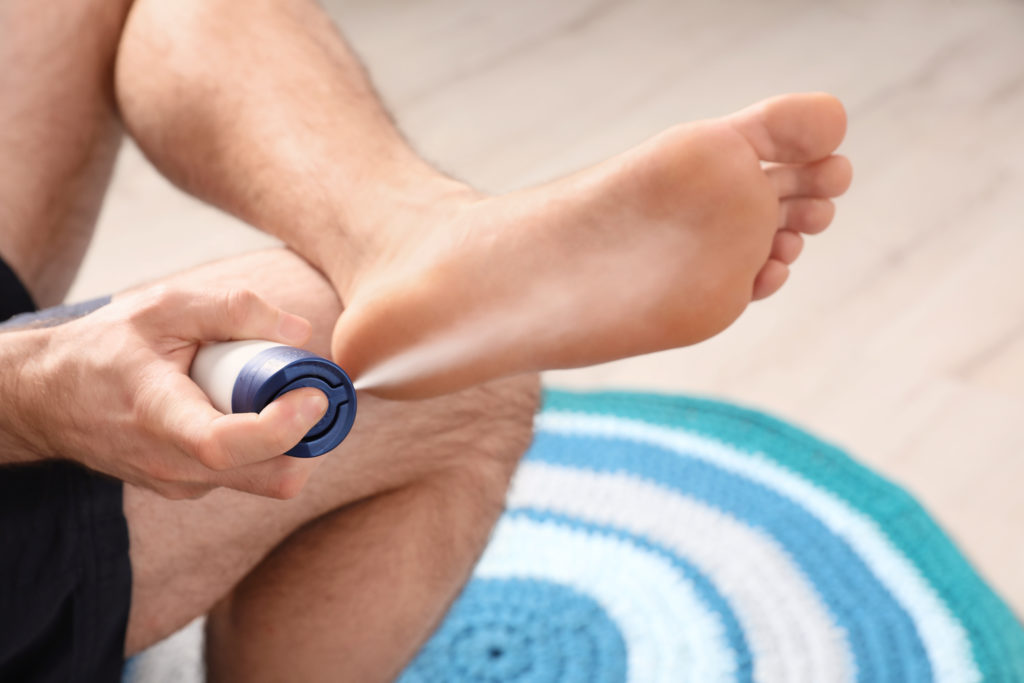Understanding Excessive Sweating: Dermatology Insights on How to Stop Sweaty Hands
Understanding Excessive Sweating: Dermatology Insights on How to Stop Sweaty Hands
Blog Article
Recognizing the Source of Excessive Sweating and Its Influence On Every Day Life
Extreme sweating, additionally referred to as hyperhidrosis, is a problem that affects a significant portion of the population, yet its underlying causes and ramifications on everyday working remain rather enigmatic. While it is frequently comprehended as a physical feedback to manage body temperature, the triggers for excessive sweating can vary commonly among individuals, including not only physical aspects yet also emotional and mental components. Additionally, the influence of this condition expands beyond simple pain, often influencing social interactions and overall quality of life. By diving into the root triggers of hyperhidrosis and discovering its multifaceted results, a deeper understanding of this pervasive concern can be gained, shedding light on the intricacies that individuals grappling with extreme sweating browse every day.
Physiology of Sweat Glands
The guideline of sweat production, an essential physiological procedure, is mostly managed by the task of sweat glands dispersed across the body. Gland are categorized into 2 primary types: eccrine and apocrine glands. Eccrine glands are the most countless and are found in nearly all locations of the body. They play a crucial function in thermoregulation by secreting a watery fluid onto the skin's surface, which evaporates and assists cool down the body down. In comparison, apocrine glands are focused in areas abundant in hair roots, such as the underarms and groin, and their secretions are thicker and milky in look.
When the body temperature level increases, either because of physical task, high temperature levels, or emotional anxiety, the nerves causes the sweat glands to generate sweat. This sweat is made up largely of water and electrolytes like salt and chloride. The process of sweat production is necessary for maintaining the body's interior temperature within a narrow, optimum variety, highlighting the important duty gland play in human physiology.
Triggers for Excessive Sweating
In comprehending the origin triggers of too much sweating, it is vital to determine the triggers that can lead to this physical response. Physical effort, high temperatures, and spicy foods are additionally known to set off too much sweating in individuals vulnerable to this problem.
Moreover, medicines such as some antidepressants, opioids, and specific supplements can additionally act as triggers for hyperhidrosis. Understanding these triggers is important in taking care of too much sweating successfully - How to stop sweaty hands. By identifying and attending to the details triggers that trigger extreme sweating in a specific, doctor can establish personalized treatment strategies to ease this problem and boost the individual's top quality of life
Medical Conditions Associated
Related to extreme sweating are different medical problems that can intensify this physical action. One usual problem is hyperhidrosis, a problem defined by unusually raised sweating that exceeds the body's thermoregulatory demands. This can materialize in focal locations like the palms, soles, important source underarms, or face, influencing an individual's top quality of life as a result of social shame and pain.
Additionally, endocrine conditions such as hyperthyroidism, diabetes, and menopausal warm flashes can also lead to too much sweating. Hyperthyroidism creates an overflow of thyroid hormonal agents, increasing metabolism and causing sweating.
Additionally, infections like endocarditis, hiv, and consumption have been connected with night sweats, a common symptom understood to interrupt rest and affect general well-being. These medical conditions highlight the varied range of underlying elements that can add to extreme sweating, necessitating detailed analysis and management by medical care experts.
Psychological and Psychological Factors

Effect On Social Communications
Extreme sweating can have extensive results on a person's capability to engage comfortably in social communications. The noticeable signs of sweat discolorations or wet spots on apparel can bring about humiliation and self-consciousness, causing individuals to withdraw from social situations. This withdrawal can affect connections, limitation social activities, and prevent personal and professional development.

In addition, the anxiety and self-worth issues stemming from excessive sweating can influence click here now communication and interpersonal skills. People might battle to concentrate on discussions, join group activities, or reveal themselves confidently. This can result in sensations of seclusion and isolation, as social links become challenging to maintain.
Final Thought

While it is generally recognized as a physical action to manage body temperature, the triggers for extreme sweating can vary extensively amongst individuals, including not only physical factors yet mental and also psychological elements. By diving right into the root causes of hyperhidrosis and exploring its diverse impacts, a deeper understanding of this pervasive concern can be acquired, losing light on the complexities that individuals grappling with too much sweating navigate on a day-to-day basis.
Physical effort, high temperatures, and spicy foods are likewise recognized to activate too much sweating in individuals susceptible to this condition. By identifying and resolving the certain triggers that prompt excessive sweating in a specific, healthcare suppliers can develop personalized treatment plans to alleviate this problem and boost the person's quality of life.
Extreme sweating can have extensive results on a person's capability to involve conveniently in social communications.
Report this page